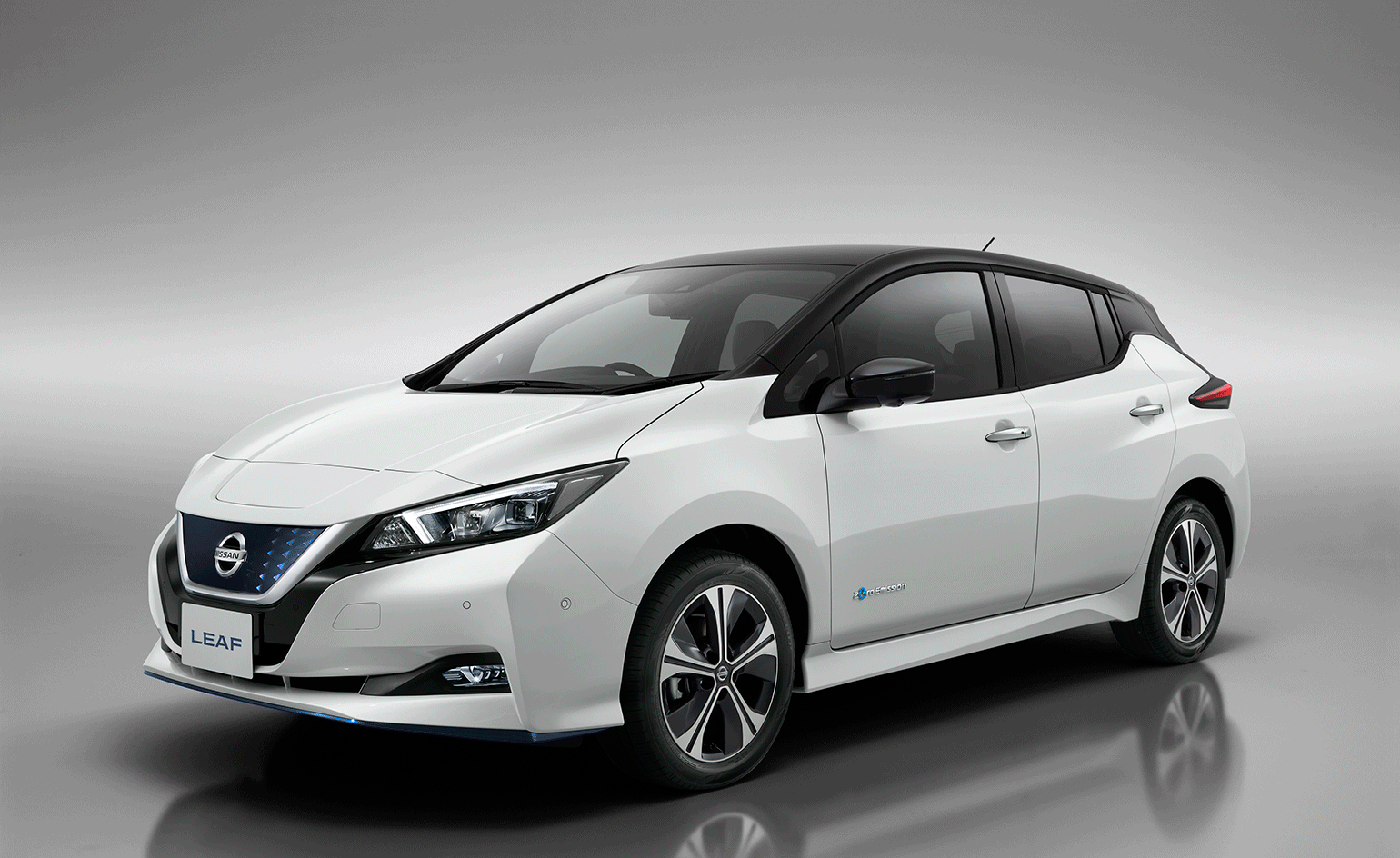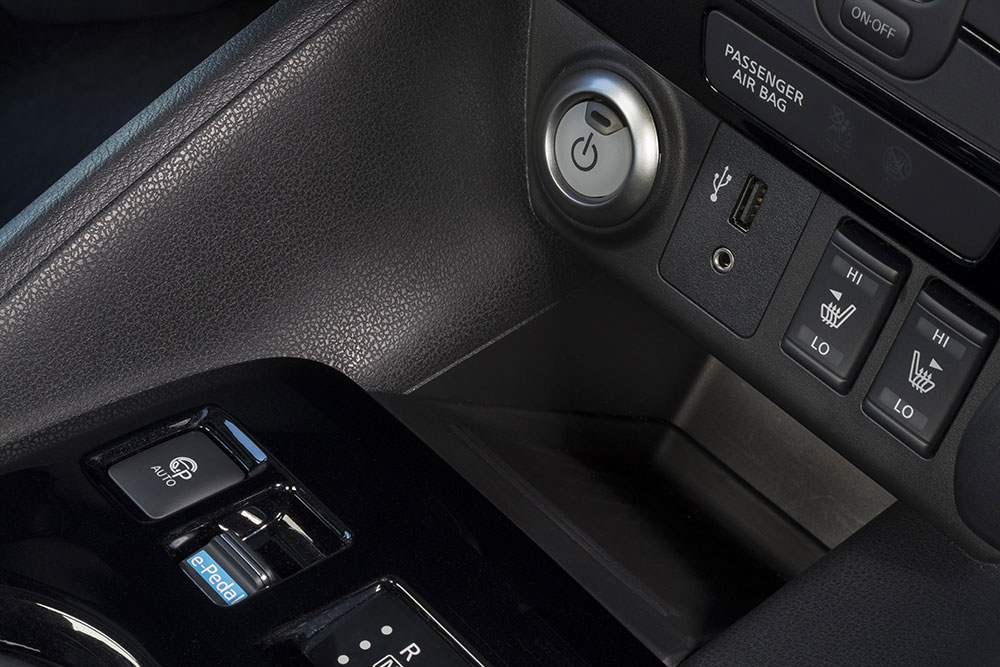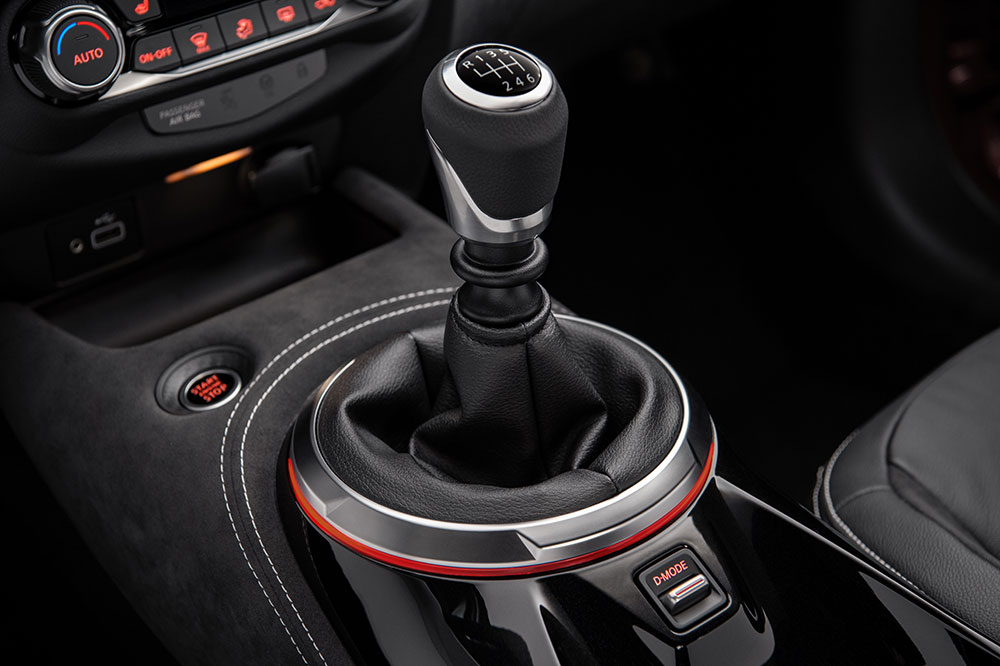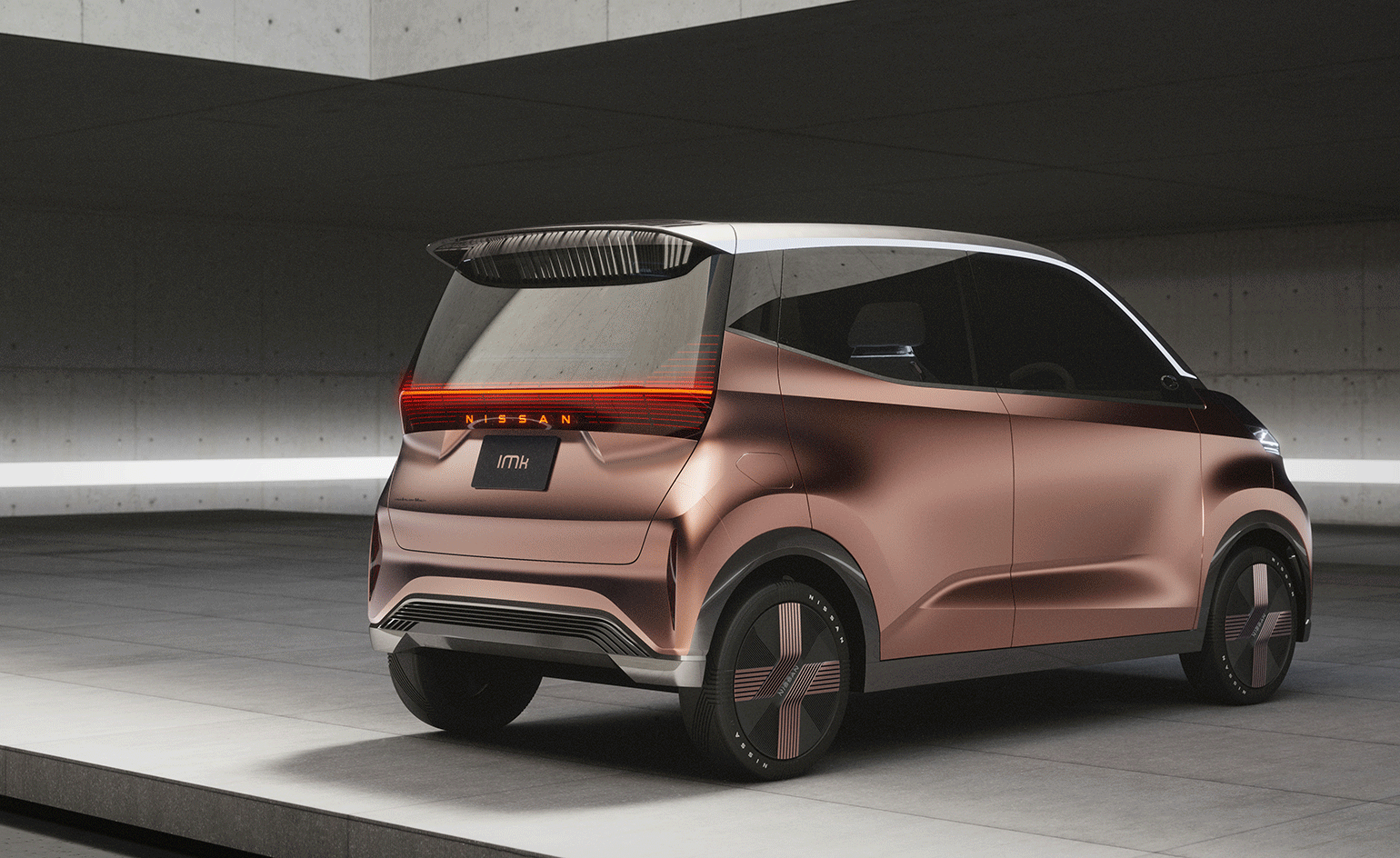Nissan’s EV-focused future is all about high tech and low stress
The Nissan LEAF is another step towards the mainstream for electric cars, with a new generation model that improves the range and comfort of the pioneering original

Receive our daily digest of inspiration, escapism and design stories from around the world direct to your inbox.
You are now subscribed
Your newsletter sign-up was successful
Want to add more newsletters?
Nissan's preferred future scenario is increasingly clear cut; internal combustion engines will be gradually phased out and electric cars will grow and grow in popularity. Long-range product and investment plans are hoping that legislation and societal pressure will usher in a new, and profitable, age of electric driving. Eventually, the mass-produced ICE car will become as socially acceptable as an unfiltered cigarette in a nursery school, leaving only esoteric classics and the noisy playthings of the hard-hearted super-rich to pump out an increasingly rare cocktail of noise and emissions.
The other scenario isn’t quite as business-friendly, and that’s the idea of reducing our chronic automobile dependence. In this timeline, it’s not just the fume-belching gas guzzler that becomes a pariah, but all and any form of over-scaled personal transportation. Understandably, this prospect doesn’t hold much economic appeal for manufacturers or governments – according to the European Automobile Manufacturers Association in 2019, ‘motor vehicles account for €428 billion in tax contributions in the EU-15 countries alone.’ As a result, one school of thought holds that we should just cut the cord with the car and sever all emotional connections with these once-unquestioned objects of desire.

Whilst stark inside, Nissan LEAF is highly utilitarian with simple-to-use controls
Nissan is taking the alternative route. It believes that cars will evolve into superannuated consumer goods, a fusion of space and function that has little or nothing to do with speed, style, glamour and power. Nissan’s second-generation LEAF EV is the quintessential white good car. It is not especially exciting to look at, or to be in, but it works as promised, delivering an impressive range, as well as all the creature comforts and technology the most demanding owner expects. Originally introduced in 2010, the LEAF is now the world’s best-selling EV, hitting the sweet spot of price, range and practicality. The new model is headed up by the flagship e+ model, offering 239 miles of range. All contemporary LEAFs are as flexible as possible when it comes to charging options, while Nissan’s ProPILOT autonomous abilities include self-parking systems and a neat traffic jam-busting mode that keeps up with stop-start traffic. The ‘e-pedal’ function ramps up the regenerative braking so you can effectively drive using a single pedal, another EV advantage, while smartphone connectivity is seamless and fuss free.
And yet. There’s something about jumping in and pressing the blue ‘on’ button that makes the car feel both highly functional and just a little bland. A little bit less like a car, in fact. And this is how Nissan is forging a new kind of cultural relationship with the car, making it more of a plug and play appliance than a bold expression of individuality.

Nissan Juke's upcoming 2020 edition is bigger, plusher and more luxurious than before
That said, the company is not averse to hedging its bets, for it recently unveiled the second-generation Juke. While the original Juke was a deliberate attempt at shaking up the rather conservative small car market, the new one is better looking but less of a statement. Designed at the company’s European design centre in Paddington, London, Juke 2 is created for Europe. Matthew Weaver, Nissan’s design director, explained that ‘Juke will always be synonymous with challenge and disruption. We knew we had to move the game on a lot – when it debuted in 2010 it was the only car in its segment. Now are there are more than 20.’ The new Juke, on sale next year, is bigger, plusher and more luxurious. For all the talk of an all-EV future, the truth is that conventional cars like this still sell in far greater numbers and make much greater profits. In a similar vein, the company also produces the best-selling Qashqai, a mid-scale conventionally powered crossover that sells around 250,000 units in Europe each year.
The LEAF might be forging a strong philosophical path, but it’s not yet a financial one. For now, a bilateral approach seems inevitable. For fans of personal mobility in a post-car world, the recently unveiled Nissan IMk concept is more optimistic indicator. This kei car scaled monobox EV proves there is a way forward for emotional car design, albeit one that abandons established tropes of streamlined, muscular glamour.

A kei car scaled monobox EV, the Nissan IMk concept is proof of a space for emotional car design amidst mass-market endeavours
INFORMATION
Nissan LEAF, from £27,995. nissan.co.uk
Receive our daily digest of inspiration, escapism and design stories from around the world direct to your inbox.
Jonathan Bell has written for Wallpaper* magazine since 1999, covering everything from architecture and transport design to books, tech and graphic design. He is now the magazine’s Transport and Technology Editor. Jonathan has written and edited 15 books, including Concept Car Design, 21st Century House, and The New Modern House. He is also the host of Wallpaper’s first podcast.